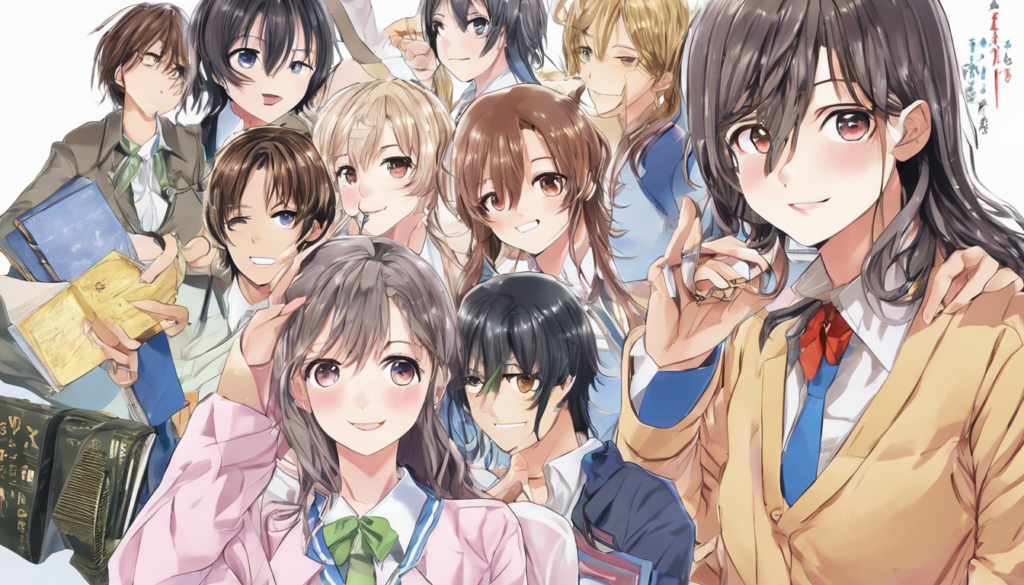In recent years, the Japanese light novel industry has seen an explosion of new and exciting works, each offering unique takes on popular tropes and genres. Among these, “Classmate No Moto Idol Ga Novel” has emerged as a standout title, captivating readers with its engaging storyline and well-developed characters. This article delves into the intricacies of this novel, exploring its plot, themes, reception, and the impact it has had on both the literary world and its audience.
Introduction to “Classmate No Moto Idol Ga Novel”
“Classmate No Moto Idol Ga Novel” is a light novel series written by the acclaimed author Riku Aizawa, renowned for his ability to weave intricate narratives with compelling characters. The series, which began serialization in 2023, has quickly gained popularity due to its fresh take on the idol genre combined with the everyday experiences of high school life.
The title translates to “The Novel of My Former Idol Classmate,” and it effectively sets the stage for a story that balances personal growth with the glamor and challenges of the entertainment industry. The novel stands out in a crowded market by offering a unique blend of drama, romance, and a touch of fantasy, all while maintaining a grounded and relatable tone.
Plot Overview
At the heart of “Classmate No Moto Idol Ga Novel” is the story of Haruto Fujita, a high school student whose life takes an unexpected turn when he reunites with his former classmate, Yumi Nakamura. Once a celebrated idol, Yumi left the entertainment industry and returned to her normal life, seeking to blend back into society. The novel unfolds as Haruto and Yumi navigate their renewed relationship amidst the challenges of high school life and Yumi’s struggles to reconcile her past fame with her present reality.
The plot intricately weaves together Haruto’s daily life, his growing feelings for Yumi, and the complexities of Yumi’s attempt to live a normal life while dealing with the remnants of her past celebrity status. “Classmate No Moto Idol Ga Novel” explores themes of identity, acceptance, and the impact of fame on personal relationships. The narrative engages readers with its rich character development and emotional depth, making it more than just a typical high school romance or idol story.
Key Themes and Characters

One of the central themes of this novel is the struggle between public persona and private identity. Yumi Nakamura’s journey is emblematic of the challenges faced by many individuals who transition from a life of public scrutiny to a more private existence. Her efforts to fit into a normal high school environment while dealing with the lingering effects of her idol career provide a nuanced look at the impact of fame on personal identity.
Haruto Fujita, the protagonist, serves as a foil to Yumi’s struggles. His character is grounded and relatable, providing a counterpoint to Yumi’s glamorous yet turbulent past. His support and understanding play a crucial role in Yumi’s journey towards self-acceptance. The chemistry between Haruto and Yumi drives much of the narrative, highlighting themes of friendship, love, and the importance of genuine connections.
The novel also delves into secondary characters who enrich the story, including Yumi’s former manager, who represents the enduring influence of her idol career, and Haruto’s friends, who offer diverse perspectives on fame and personal growth. Each character is carefully crafted to contribute to the overarching narrative and themes.
Reception and Impact
Since its debut, “Classmate No Moto Idol Ga Novel” has received widespread acclaim from both critics and readers. The novel’s unique premise and character-driven storytelling have garnered praise for its originality and emotional resonance. Fans of the genre appreciate the fresh take on the idol narrative, while newcomers to the light novel scene are drawn to its engaging and relatable plot.
The series has also been a commercial success, with high sales figures and a growing fanbase. Its popularity has led to adaptations in other media, including a manga series and a planned anime adaptation. The impact of this novel extends beyond its initial publication, influencing other works in the genre and contributing to the broader conversation about fame and identity in contemporary fiction.
Adaptations and Media

The success of “Classmate No Moto Idol Ga Novel” has led to various adaptations, which further expand its reach and impact. The manga adaptation, illustrated by popular manga artist Kana Takahashi, captures the essence of the novel while adding a visual dimension to the story. The manga has been well-received, with fans praising its faithful representation of the characters and the emotional depth of the original work.
The upcoming anime adaptation is highly anticipated, with many fans eager to see how the novel’s narrative will be translated into animation. The anime is expected to bring the story to a broader audience, potentially introducing “Classmate No Moto Idol Ga Novel” to viewers who may not be familiar with light novels.
Comparative Analysis with Other Works
In examining “Classmate No Moto Idol Ga Novel”, it is useful to compare it with other light novels and media that explore similar themes. While there are numerous stories that focus on the idol industry or high school life, “Classmate No Moto Idol Ga Novel” distinguishes itself through its nuanced portrayal of fame and personal identity.
Compared to more traditional idol-themed narratives, which often emphasize the glamour and drama of the entertainment industry, this novel offers a more introspective and realistic view of the challenges faced by individuals leaving the spotlight. Its emphasis on character development and emotional depth sets it apart from works that focus primarily on external conflicts or romantic entanglements.
The Future of “Classmate No Moto Idol Ga Novel”
As this novel continues to capture the imaginations of readers and audiences, its future looks promising. The ongoing adaptations and the series’ growing popularity suggest that it will remain a significant work within the light novel genre.
The novel’s success may also pave the way for more stories that explore the intersection of fame and personal identity, offering new perspectives on these themes. As the series evolves, it will be interesting to see how the narrative develops and how it continues to resonate with its audience.
Conclusion
“Classmate No Moto Idol Ga Novel” has made a notable impact in the world of light novels, offering a compelling blend of romance, drama, and introspection. Its exploration of fame and personal identity, combined with its engaging characters and relatable storyline, has earned it a special place in contemporary fiction.
The novel’s success, including its adaptations and the positive reception from readers, underscores its significance in the genre. As fans eagerly anticipate future developments and adaptations, “Classmate No Moto Idol Ga Novel” stands as a testament to the power of storytelling and the enduring appeal of well-crafted narratives.






